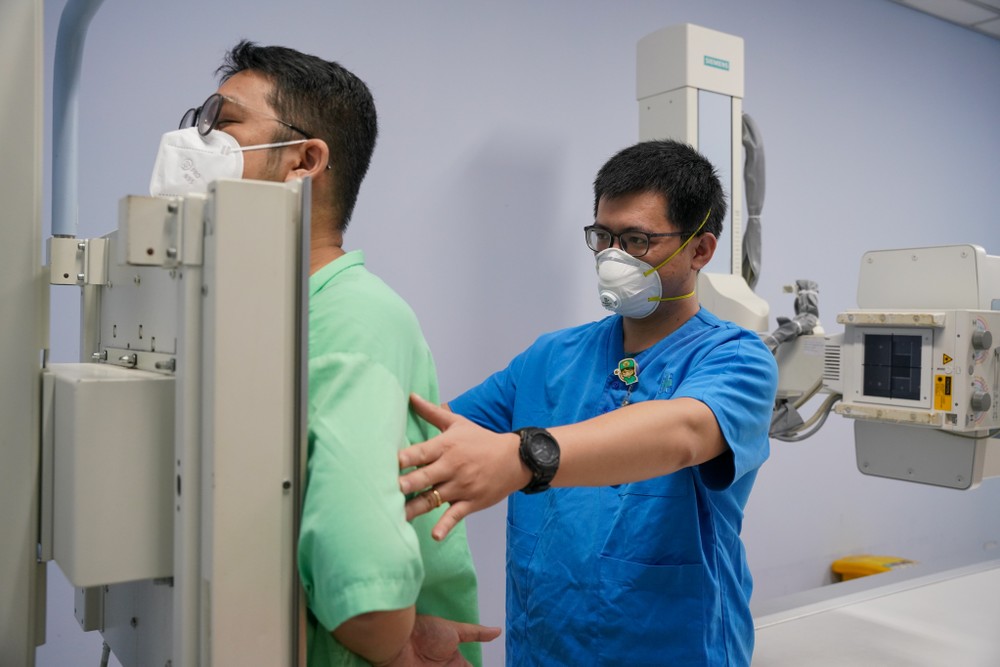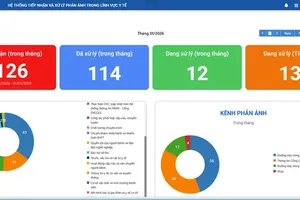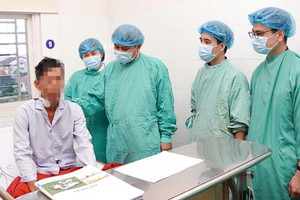
A key highlight of the draft Preventive Health Law, presented to the National Assembly on October 23, is the inclusion of early screening for non-communicable diseases (NCDs) such as cardiovascular disease, cancer, diabetes, and chronic obstructive pulmonary disease (COPD). The move is seen as a major step toward reducing the country’s long-term healthcare burden.
400,000 deaths are reported annually
According to the World Health Organization (WHO), NCDs account for roughly 74 percent of all deaths worldwide. In Vietnam, the figure stands at about 77 percent—equivalent to nearly 400,000 deaths each year.
Associate Professor Vu Van Giap, Deputy Director of Bach Mai Hospital, noted that NCDs pose a serious burden for both developed and developing nations, including Vietnam. Most cases stem from long-term exposure to risk factors such as smoking, air pollution, and aging, and are often detected late when complications are severe. Preventive measures, he added, have not yet received adequate investment. Implementing the Preventive Health Law, therefore, would ease pressure on big hospitals and strengthen Vietnam’s public health foundation.
Associate Professor Do Van Dung, former Dean of Public Health at Ho Chi Minh City University of Medicine and Pharmacy, emphasized that current screening activities lack a solid legal framework and specific guidelines for grassroots healthcare units—the closest point of contact with citizens. Regular screening not only enables early disease detection but also saves significant healthcare costs. Every dong spent on screening can save many more in treatment, he said, calling it a smart long-term investment.
Grassroots healthcare systems are empowered
According to Deputy Director Le Thai Ha of the Ministry of Health’s Department of Disease Prevention, the proposed law aligns with WHO recommendations by promoting early detection, proactive prevention, and timely intervention. The Ministry is identifying key disease groups for priority control such as chronic lung disease, cardiovascular disease, diabetes, cancer, stroke, and chronic kidney disease.
Deputy Director Le Thai Ha said that the Ministry of Health is developing standardized guidelines for community-based screening, diagnosis, and management while collaborating with central hospitals to transfer techniques to local facilities. He added that by 2035, all medical facilities are expected to have the capacity to screen and manage common NCDs. Medical clinics in communes and ward will be able to monitor residents’ long-term health, detect risks early, and refer patients promptly helping reduce the burden on higher-level hospitals.
At the National Assembly session, Chairman Nguyen Dac Vinh of the Committee for Culture and Society proposed adding provisions on mental health, particularly the prevention and treatment of psychological disorders among students and those affected by trauma from natural disasters. Regarding nutrition policies, he recommended ensuring micronutrient supplementation for all pregnant women and malnourished or stunted children nationwide, regardless of region, to promote birth rates and population quality.
Minister of Health Dao Hong Lan stated that the Covid-19 pandemic exposed many weaknesses in disease prevention, reinforcing the need for a comprehensive Preventive Health Law. The Ministry is committed to integrating feedback from lawmakers to refine policies on both communicable and non-communicable diseases. Minister of Health Dao Hong Lan noted that while Vietnam already has a national nutrition program in place, limited resources have hindered its impact. The new law aims to ensure sufficient funding and implementation capacity for preventive health initiatives.
























